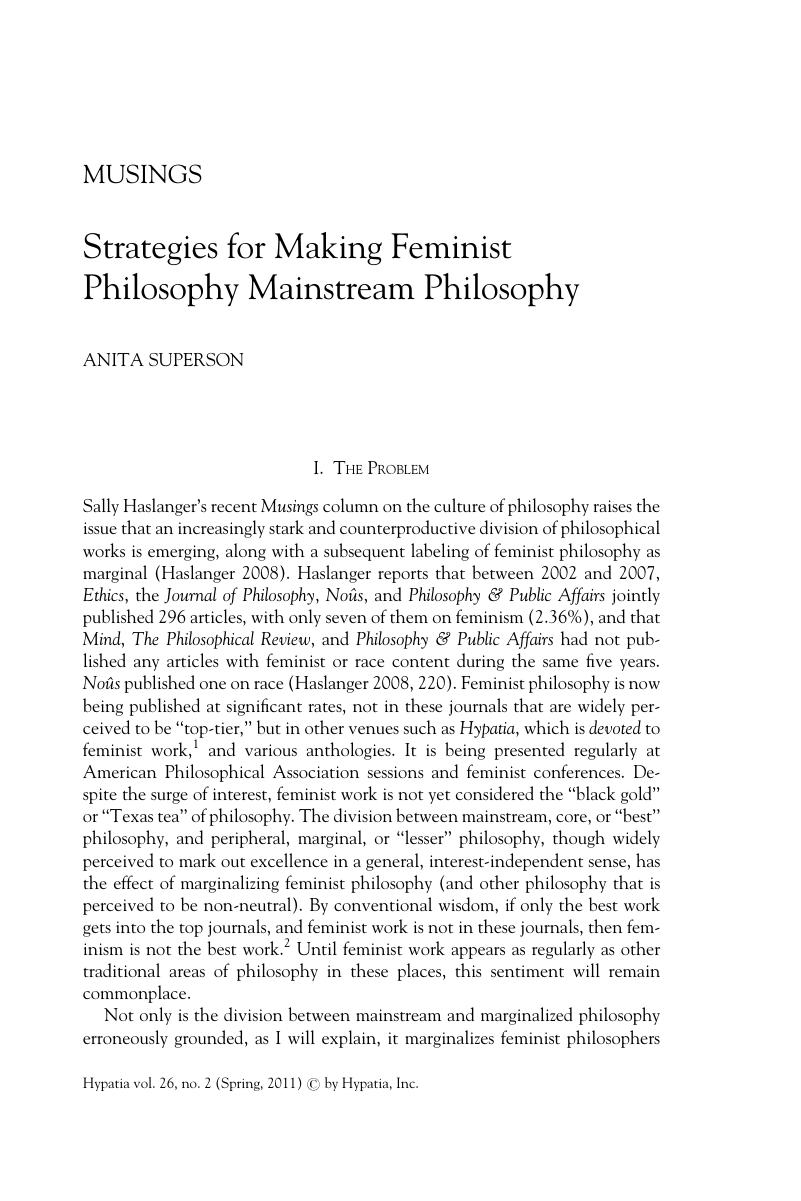Crossref Citations
This article has been cited by the following publications. This list is generated based on data provided by Crossref.
Dougherty, Tom
Baron, Samuel
and
Miller, Kristie
2015.
Why Do Female Students Leave Philosophy? The Story from Sydney.
Hypatia,
Vol. 30,
Issue. 2,
p.
467.
Sundean, Lisa J.
Polifroni, E. Carol
Libal, Kathryn
and
McGrath, Jacqueline M.
2018.
The rationale for nurses on boards in the voices of nurses who serve.
Nursing Outlook,
Vol. 66,
Issue. 3,
p.
222.
Vasudev, Archana
2020.
Deleuzian and Guattarian Approaches to Contemporary Communication Cultures in India.
p.
141.
Whiting, Lisa
and
Buxton, Rebecca
2023.
Women in Philosophy: What is to be Done?.
European journal of analytic philosophy,
Vol. 19,
Issue. 1,
p.
SI6.





